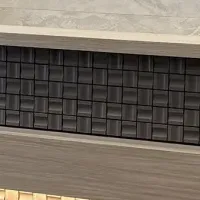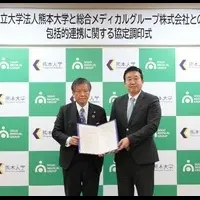
ImmunoGenesis Begins Innovative Clinical Trial for Advanced Cancers Combining IMGS-101 with Balstilimab and Zalifrelimab
ImmunoGenesis Launches Clinical Trial Targeting Advanced Cancers
ImmunoGenesis, a pioneering company in the field of biotechnology, has announced a pivotal step in cancer research with the initiation of a Phase 1/2 clinical trial at the renowned University of Texas MD Anderson Cancer Center in Houston, Texas. This trial evaluates the innovative hypoxia reversal agent, IMGS-101 (evofosfamide), in conjunction with two established immune checkpoint inhibitors, Balstilimab and Zalifrelimab. This combination is specifically designed for patients diagnosed with advanced prostate cancer, pancreatic cancer, or HPV(-) head and neck tumors that have relapsed or proved refractory to standard treatments.
The Importance of Hypoxia in Cancer Therapy
Research has consistently shown that tumor hypoxia, characterized by low oxygen levels, plays a significant role in the immunosuppressive environment within solid tumors. Hypoxic conditions can limit the effectiveness of existing cancer treatments by restricting T-cell infiltration and suppressing immune responses. By reversing hypoxia, IMGS-101 aims to enhance the overall efficacy of immunotherapies for these notoriously difficult cancer types.
James Barlow, the President and CEO of ImmunoGenesis, remarked on the trial's significance, stating, "This trial represents a crucial milestone in our mission to address immune resistance mechanisms. By targeting and reversing tumor hypoxia, we aspire to unlock the full potential of the immune system, thereby reshaping the treatment landscape for cancers that currently pose high unmet medical needs."
Protocol and Objectives of the Trial
The open-label trial, bearing the identifier NCT06782555, encompasses both a dose escalation and an expansion phase. The primary goals are to assess the safety, pharmacokinetics, and preliminary anti-tumor activity of IMGS-101 when paired with Balstilimab and Zalifrelimab in patients with locally advanced or metastatic castration-resistant prostate cancer, pancreatic cancer, and HPV(-) squamous cell carcinoma of the head and neck.
Dr. Charles Schweizer, Senior Vice President of Clinical Development at ImmunoGenesis, expressed optimism regarding the trial, stating, "This investigation marks an exciting advancement in the quest to overcome one of the significant hurdles in cancer immunotherapy. Hypoxia suppresses T-cell activity, particularly in prostate, pancreatic, and head and neck cancers. By negating this hypoxic effect, IMGS-101 has the potential to improve T-cell access to tumors, thereby boosting the effectiveness of checkpoint inhibitors and possibly transforming the outcomes for patients."
About IMGS-101 and Its Mechanism
IMGS-101, recognized as Evofosfamide, serves as a hypoxia-activated prodrug. It is a unique compound developed to selectively target the low-oxygen environments typical of certain tumors. In preliminary studies, IMGS-101 has shown promise in restoring T-cell functions and enhancing responses when used alongside checkpoint inhibitors. Its development is spearheaded by the founder of ImmunoGenesis, Dr. Michael A. Curran at MD Anderson.
Both Balstilimab and Zalifrelimab have been extensively evaluated across numerous clinical contexts, showing favorable tolerability and activity profiles in various tumor types. The clinical collaboration with Agenus, the company responsible for these checkpoint inhibitors, underscores the strategic alliance in pushing forward this innovative therapy.
Future Perspectives
With this advancement, ImmunoGenesis is positioning itself at the forefront of oncology, potentially reshaping treatment outcomes for patients with some of the most challenging malignancies. As the trial progresses, there is widespread anticipation about the results and how they may influence subsequent treatment protocols for advanced and resistant cancers.
For further details and ongoing updates regarding IMGS-101 and the clinical trial, interested parties can visit ImmunoGenesis' official website at www.immunogenesis.com.
Topics Health)










【About Using Articles】
You can freely use the title and article content by linking to the page where the article is posted.
※ Images cannot be used.
【About Links】
Links are free to use.